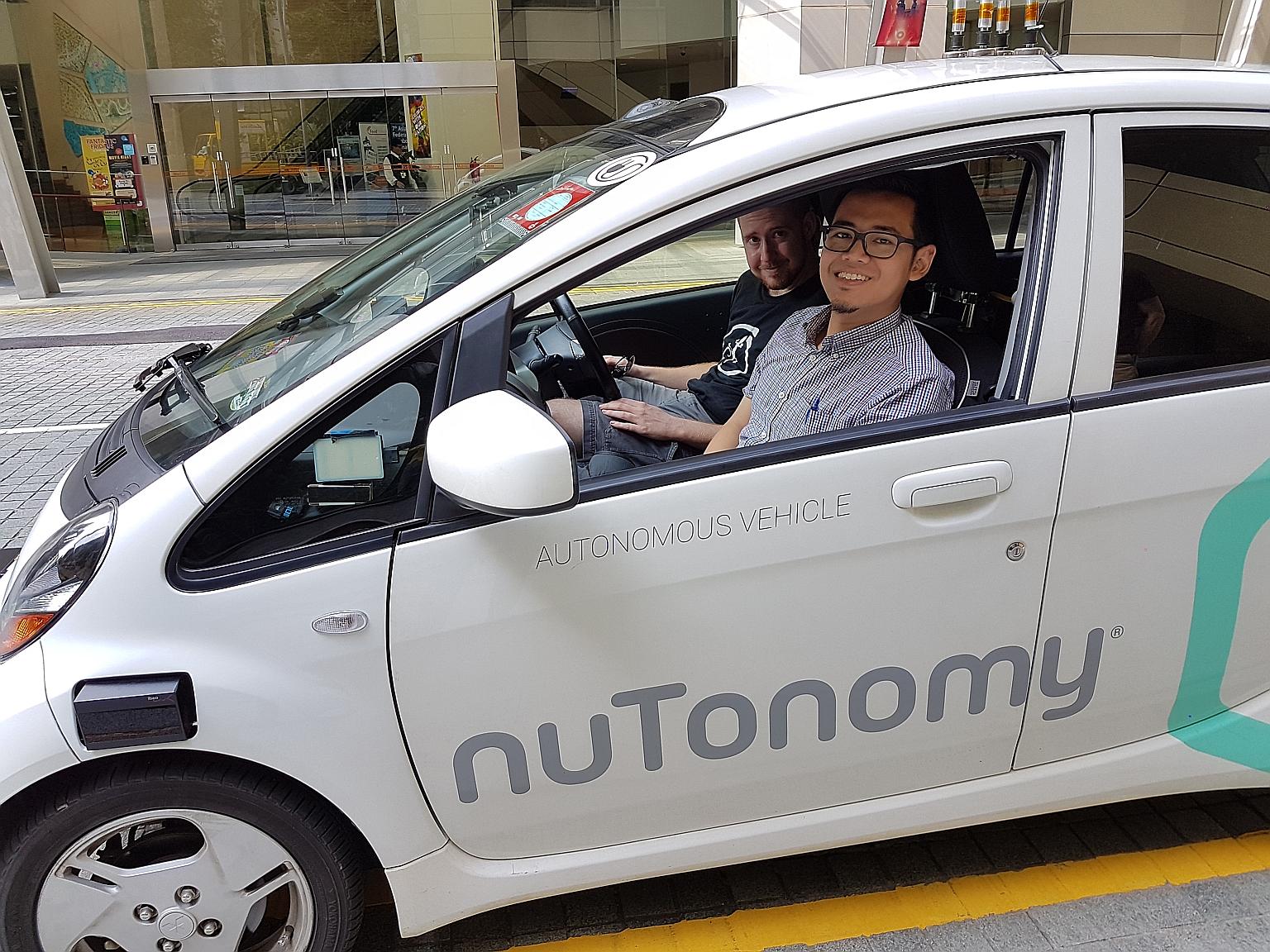2016: A YEAR OF DISRUPTION
Driverless vehicles make inroads here
Sign up now: Get ST's newsletters delivered to your inbox

The reporter with nuTonomy safety engineer Greg Butron in the start-up's self-driving Mitsubishi i-MiEV.
ST FILE PHOTO
Within the next decade or two, transportation in Singapore could look very different as driverless vehicles ranging from buses to taxis hit the roads.
The Government sees autonomous vehicles (AVs) as a key plank in moving the Republic towards a car-lite future. Transport Minister Khaw Boon Wan predicted in April that with the advent of such vehicles, private cars are likely to "go the way of horse carriages" within the next quarter of a century.
In line with that long-term vision which seeks to make AVs an integral part of the transport network, several initiatives were rolled out or announced this year.
Start-up nuTonomy launched a free driverless taxi service in the one-north area on a trial basis in August. It was the first in the world to do so, beating ride-hailing giant Uber, which started offering such services in the American city of Pittsburgh only the following month.
By March, driverless shuttles will ply the roads of Nanyang Technological University.
The university is also set to introduce two self-driving buses that will transport passengers along a 1.4km route between the university and the neighbouring CleanTech Park in 2018. That same year, nuTonomy is also expected to launch commercial, on-demand driverless taxi services in selected areas.
In an interview with The Straits Times in May, Transport Ministry Permanent Secretary Pang Kin Keong said Singapore aims to be a leader in the development of AVs, adding that they would help the Republic overcome its "key challenges" of land and manpower constraints. "We can also add vibrancy and a new dimension to our economy, create new and good jobs, and draw and anchor investments and capabilities here," said Mr Pang, who chairs a committee that oversees efforts to make self-driving vehicles a reality.
The impact of driverless vehicles will extend beyond transport, as the technology is set to be implemented in areas ranging from road-cleaning to freight delivery.
While the year saw major developments in the AV scene, questions remain about the disruptive technology. One of nuTonomy's self-driving cars hit a lorry while on a test run in October, an incident which raised concerns about the safety of AVs.
The accident - believed to be the first involving a self-driving vehicle in Singapore - came after a number of other such occurrences worldwide this year. In another high-profile accident in May, the driver of a Tesla Model S in Florida died in a crash while the car was in autopilot mode.
Hacking is also a concern. Tech magazine Wired reported last year that cyber-security researchers managed to crash a Jeep by remotely hacking into its on-board software and disabling its brakes.
While the use of AVs is projected to address issues such as the shortage of bus captains, its impact on professional drivers here remains to be seen.
The technology could be a significant disruptor for some 10,000 bus drivers, more than 27,000 cabbies and around 25,000 private- hire car drivers.


